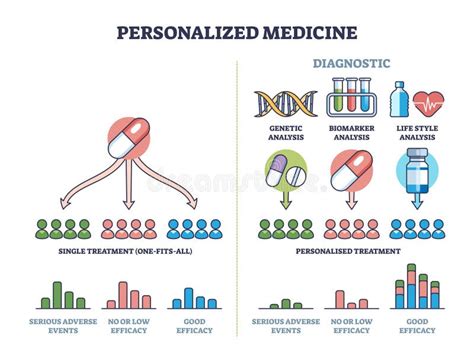Intro
Kaiser Permanente is a renowned healthcare organization that has been at the forefront of providing high-quality patient care for over 75 years. With a mission to improve the health of its members and the communities it serves, Kaiser Permanente has implemented various innovative strategies to enhance patient care. Here are five ways Kaiser Medical Center improves patient care.

1. Integrated Care Model
Kaiser Permanente's integrated care model is a key factor in its ability to provide high-quality patient care. This model brings together a team of healthcare professionals, including physicians, nurses, and other specialists, to work collaboratively and coordinate care for each patient. By sharing information and resources, this team-based approach ensures that patients receive comprehensive and seamless care.
For example, Kaiser Permanente's electronic health record (EHR) system allows healthcare providers to access a patient's medical history, test results, and treatment plans in real-time, enabling them to make informed decisions and provide more effective care. This integrated approach has been shown to improve patient outcomes, reduce medical errors, and enhance the overall patient experience.
Benefits of Integrated Care
- Improved coordination of care
- Enhanced communication among healthcare providers
- Better management of chronic conditions
- Reduced medical errors
- Improved patient satisfaction
2. Personalized Medicine
Kaiser Permanente is a leader in personalized medicine, which involves tailoring medical treatment to an individual's unique genetic profile, medical history, and lifestyle. By using advanced technologies such as genetic testing and data analytics, Kaiser Permanente's healthcare providers can identify the most effective treatments for each patient and develop personalized care plans.
For instance, Kaiser Permanente's genetic testing program allows healthcare providers to identify patients who are at high risk of developing certain diseases, such as breast cancer or heart disease. This information can be used to develop targeted prevention and treatment strategies, improving patient outcomes and reducing healthcare costs.

Benefits of Personalized Medicine
- Targeted treatments for specific diseases
- Improved patient outcomes
- Reduced healthcare costs
- Enhanced patient satisfaction
- More effective disease prevention
3. Telehealth Services
Kaiser Permanente offers a range of telehealth services, including video visits, phone consultations, and online messaging, to provide patients with convenient and flexible access to healthcare. These services allow patients to connect with healthcare providers remotely, reducing the need for in-person visits and improving access to care for those with mobility issues or busy schedules.
For example, Kaiser Permanente's video visit program allows patients to schedule virtual consultations with healthcare providers, reducing wait times and improving access to specialist care. This service is particularly useful for patients with chronic conditions, such as diabetes or hypertension, who require regular monitoring and management.
Benefits of Telehealth Services
- Convenient access to healthcare
- Reduced wait times
- Improved access to specialist care
- Enhanced patient engagement
- Cost savings
4. Patient Education and Engagement
Kaiser Permanente recognizes the importance of patient education and engagement in improving health outcomes. The organization offers a range of educational resources and programs to empower patients to take an active role in their healthcare.
For instance, Kaiser Permanente's patient education program provides patients with personalized information and resources on their medical conditions, treatment options, and healthy lifestyle choices. This program includes online resources, such as health articles and videos, as well as in-person classes and workshops.

Benefits of Patient Education and Engagement
- Improved health literacy
- Enhanced patient engagement
- Better health outcomes
- Increased patient satisfaction
- Reduced healthcare costs
5. Research and Innovation
Kaiser Permanente is committed to advancing medical research and innovation to improve patient care. The organization has a dedicated research institute, the Kaiser Permanente Research Institute, which conducts studies and trials to develop new treatments and improve existing ones.
For example, Kaiser Permanente's research institute has conducted studies on the effectiveness of new treatments for conditions such as heart disease and cancer. This research has led to the development of new treatment protocols and guidelines, improving patient outcomes and advancing the field of medicine.

Benefits of Research and Innovation
- Improved patient outcomes
- Advancement of medical knowledge
- Development of new treatments and technologies
- Enhanced patient care
- Reduced healthcare costs
In conclusion, Kaiser Permanente's commitment to improving patient care is evident in its integrated care model, personalized medicine, telehealth services, patient education and engagement, and research and innovation. These strategies have improved patient outcomes, reduced healthcare costs, and enhanced the overall patient experience.
We invite you to share your thoughts on how Kaiser Permanente's innovative approaches to patient care are making a difference. Please comment below and share this article with others who may be interested in learning more about Kaiser Permanente's commitment to patient care.
What is Kaiser Permanente's integrated care model?
+Kaiser Permanente's integrated care model brings together a team of healthcare professionals to work collaboratively and coordinate care for each patient.
How does Kaiser Permanente's personalized medicine approach work?
+Kaiser Permanente's personalized medicine approach uses advanced technologies such as genetic testing and data analytics to tailor medical treatment to an individual's unique genetic profile, medical history, and lifestyle.
What types of telehealth services does Kaiser Permanente offer?
+Kaiser Permanente offers a range of telehealth services, including video visits, phone consultations, and online messaging.
